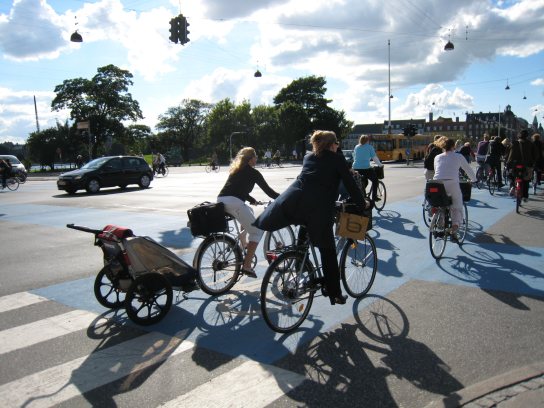
Under normal circumstances, I don’t read the Boston Herald. Most of the time I only land on their website when I’m searching for something specific and land on one of their pages.
Yesterday, I was looking for some cycling information and I happened to stumble upon an interesting new report about a well known tennis star. Even though she’s the number one women’s tennis player in the world, her tennis accomplishments were not the focus of the news.
The headline read: “Serena Williams rides bicycle to match.” I had to check this out to see what had happened.
My first thought was that she had been in some sort of accident or that she had been spotted engaging in a traffic violation. After all, the Herald has never been kind to cyclists. And only something negative about cyclists ever seems to grace their publication’s pages.
The report was brief. It focused on the horrendous traffic in Key Biscayne, Florida. Apparently, her tennis match was scheduled for 8:00 pm and the main road was at a standstill, clogged with motorized traffic.
She was only eight minutes away from the tournament location, but she had no way to get there. She did have the presence of mind to ask for alternative transportation. But her first thought was to ask for a different type of motorized vehicle, a golf cart.
It’s unclear how she intended to get through traffic with a golf cart. Riding it on the sidewalk is probably illegal, and it’s unlikely that there was enough room along the side of the road for the golf cart to fit.
The hotel staff members she was speaking to offered her a motor bike. She declined their offer, which was a wise move since riding such a vehicle in heavy traffic is even more dangerous than riding a bicycle. Finally they offered her a bicycle. Her response was “’I really don’t do bicycles, but I will today.”
I’m not sure how to interpret such a comment. If someone doesn’t “do bicycles” does this mean that she wouldn’t be willing to ride a bike to a tournament or that she doesn’t ride bikes at all? I would really like to know.
Riding a bike to the tournament may not have appealed to Serena initially, but due to necessity, she discovered that she enjoyed it. She was quoted as saying “It was fun. It was probably one of my best memories I think ever, riding a bike to a match. That’s pretty cool.”
Why did it take necessity to make this gifted athlete discover the benefits and joys of riding a bicycle as transportation? Cycling would be beneficial for rounding out her training regimen. And it could have been employed to help her come back from the injuries she has sustained during her career.
Since this came to the Herald via the Associated Press (AP), it was also widely reported among other news outlets. If the AP found it newsworthy, so must newspapers throughout the country.
This is evidence, albeit limited evidence, of how novel the idea of riding a bike as transportation still is in American culture. Using a bicycle to get through gridlocked traffic makes perfect sense.
A bike can fit alongside traffic. In a pinch a cyclist can ride for a while on the sidewalk; in some places this is legal. Most importantly, a bicycle can keep moving when cars have nowhere to go.
Unless a sponsor picks up on this story and offers Serena money to promote their bikes and bike riding, it’s unlikely that this will happen again. As an isolated incident, it was newsworthy, but long-lasting change rarely comes from such events.
One interesting observation I made was that none of the Herald’s usual cycling bashers came out of the woodwork to leave nasty comments on the story. In fact there were no comments left at all.
This could be interpreted as either a good or bad sign. Commenters may not have been able to find fault with Serena so they didn’t bother attacking her cycling activities. Or they have begun to lose steam in their relentless attacks on all things related to cycling.
If Serena or copycat tennis players started riding bikes to either matches or practice sessions, it might help to make cycling more mainstream. We’ll have to hope for a stroke of luck in this regard, and if it doesn’t pan out, we’ll have to look to other high profile people to take up the cause.



